Safer Internet Day
Safer Internet Day
Simon Trembath
Technology Coordinator
At CLN, we prioritize our commitment to ensuring the well-being of our students. In an era where the internet significantly shapes our daily lives, it becomes imperative to cultivate awareness about potential risks and advocate for responsible online interactions. On Tuesday, February 6th, we observe ‘Safer Internet Day’ (SID), an annual event that presents a valuable opportunity for parents, teachers, and students to engage in positive dialogues regarding internet safety. The primary focus is to empower young people to navigate their online lives positively and securely. Students should feel confident in approaching trusted adults whenever they encounter online safety concerns. SID serves as a platform to normalize these conversations. The day also offers the school community to engage with and learn from a wide range of resources for students, parents and caregivers and teachers.
We extend an invitation to everyone in our school community to actively participate in this day by fostering discussions on how to cultivate safe and healthy online interactions. Below, you will find an array of practical resources that will assist in navigating online safety and serve as conversation starters within your family on this important topic.
- https://www.saferinternetday.org/
- Common Sense – Internet safety resources
- Childnet – Internet safety resources
- Centro de Internet Seguro
- Red de PaPaz
- Connect Safely – Quick Guides for online safety
By instilling these habits and values, children can develop good practices for staying safe on the internet and make the most of the educational opportunities it offers. Regular communication and an open dialogue about online experiences are essential components of promoting internet safety. Internet safety is crucial for school children to navigate the online world responsibly. Here are some tips for them:
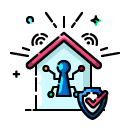
Keep Personal Information Private
- Never share personal details like home address, phone number, school name, or family information online.
- Use a pseudonym or nickname instead of real names when creating accounts.

Be Skeptical and Think Before Clicking
- Avoid clicking on suspicious links or pop-up ads.
- Verify the authenticity of websites and only download from trusted sources.

Use Strong and Unique Passwords
- Create strong passwords with a mix of letters, numbers, and symbols.
- Avoid using the same password across multiple accounts.
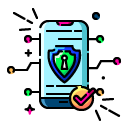
Social Media Awareness
- Set privacy settings on social media platforms to control who can see personal information.
- Be cautious about accepting friend requests from strangers.
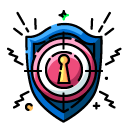
Cyberbullying Awareness
- Report any instances of cyberbullying to a trusted adult.
- Be mindful of online behavior and treat others with respect.

Talk to a Trusted Adult
- If something online makes a child uncomfortable or confused, encourage them to talk to a parent, teacher, or another trusted adult.

Understand the Consequences
- Explain the potential consequences of sharing inappropriate content or engaging in cyberbullying.
- Emphasize the importance of responsible online behavior.

Time Management
- Encourage a healthy balance between online and offline activities.
- Set limits on screen time and prioritize homework, physical activity, and face-to-face interactions.
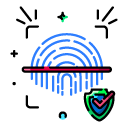
Critical Thinking and Online Etiquette
- Teach children to think critically about the information they encounter online and question the credibility of sources.
- Promote positive online behavior, including being respectful in comments and discussions.
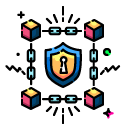
Monitor Online Activities
- Keep an eye on a child’s online activities, and discuss their experiences regularly.
- Use parental controls and monitoring tools to ensure a safer online environment.
Últimas noticias
Proyectos ECOS y LENS en Primaria
Se reconoció a los estudiantes que en los proyectos de las clases de ECOS (Español y Sociales) y LENS (Matemáticas e Inglés), se destacaron por su buen liderazgo, trabajo en equipo y aprendizaje cooperativo…
Mi hijo quiere jugar videojuegos, ¿y ahora qué?
Es importante ver los videojuegos como una oportunidad de vínculo familiar: jugar con ellos, interesarse por sus gustos y modelar comportamientos…
XII Cross Country y IV Color Run: una mañana para correr por la educación
Celebramos una nueva edición de la Cross Country y la Color Run, una jornada que reunió a más de 1000 personas en torno a una causa que nos inspira, apoyar el Programa de Talentos Académicos…




